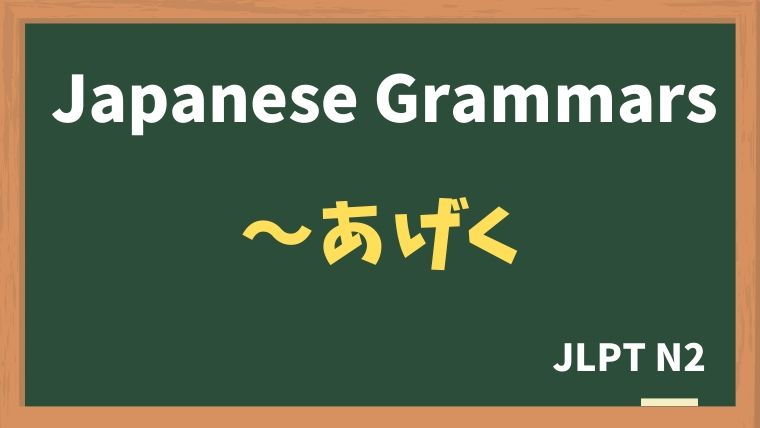
Explanation:〜あげく
fa-check-circleMeaning
"色々したけど、最後は悪い結果になる / 長い間〜したけど、最後は悪い結果になる"
"ended up"
Used to indicate that something was the final outcome or result after a series of actions or events, often with a negative connotation. It implies that after much effort or many attempts, the end result was not favorable.
fa-check-circleForm
V(ta form) + あげく
Nの + あげく
fa-check-circlePoints
- Indicates the Final Result: "〜あげく" is used to show the final result or outcome after a series of actions or events.
- Negative Connotation: It often has a negative connotation, suggesting that despite efforts or attempts, the result was undesirable or unfortunate.
fa-check-circleJLPT Level
N2
Sample sentenes
アンナさんはお店の前で1時間も考えたあげく、何も買わなかった。
After thinking for an hour in front of the store, Anna didn't buy anything.
彼女とはけんかを繰り返したあげく、別れることになった。
After repeatedly fighting with her, we ended up breaking up.
人気のラーメン店に2時間並んだあげく、売り切れで食べることができなかった。
After waiting in line for two hours at a popular ramen shop, they ran out and we couldn't eat.
さんざん走ったあげく、終電に間に合わなかった。
After running a lot, I missed the last train.
日本に3年も留学したあげく、全然日本語が上手にならなかった。
After studying abroad in Japan for three years, I still didn’t improve my Japanese at all.
苦労して東京大学に入学したあげく、1年でやめてしまった。
After struggling to get into the University of Tokyo, I quit after one year.
長い交渉のあげく、契約は成立しなかった。
After long negotiations, the contract was not concluded.
Vocabulary
| Japanese |
English | |
| 繰り返す | くりかえす | to repeat |
| 交渉 | こうしょう | negotiation |
| 苦労する | くろうする | to struggle |
| 契約 | けいやく | contract |
| 成立する | せいりつする | to conclude |






